Pakistan Salman Taseer murder: Thousands mourn at Mumtaz Qadri funeral
- Published
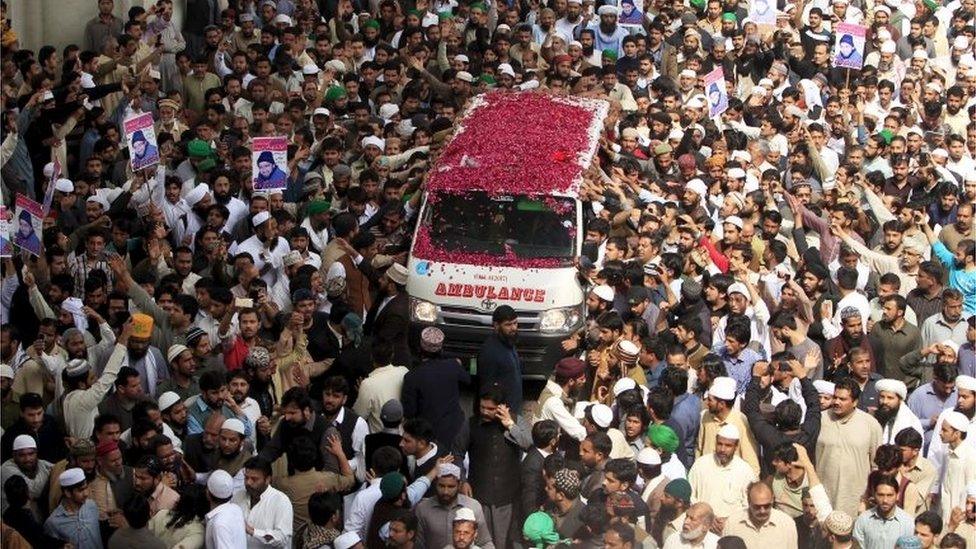
Thousands of Pakistanis have turned out for the funeral of a former bodyguard executed for killing Punjab's governor over his opposition to blasphemy laws.
Security was tight as a crowd of about 30,000 gathered to pay their last respects to Mumtaz Qadri in Rawalpindi.
Qadri was hailed as a hero by Islamists for the 2011 killing of Salman Taseer, who wanted to reform the strict laws.
Thousands of police were deployed along the route of the funeral procession and in the nearby capital, Islamabad.
Qadri supporters threw rose petals on his coffin, Reuters reports from Liaquat Bagh park where the funeral was held.
"He lives! Qadri lives!" mourners chanted, the news agency reported. "From your blood, the revolution will come!"
Why were hard-liners kept off air?
How Punjab governor's killer became a hero
What are Pakistan's blasphemy laws?
Security forces kept their distance and stick-wielding activists of the hardline Sunni Tehreek movement, which organised the funeral prayers, controlled the crowd.
The coffin was then taken in its flower-strewn ambulance some 20km (12.5 miles) north to Qadri's ancestral village on the eastern outskirts of Islamabad.
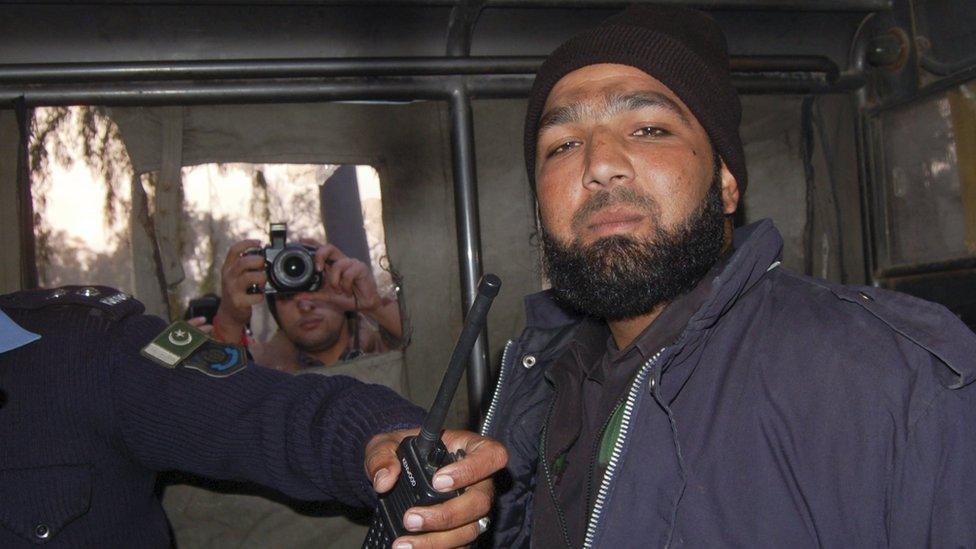
Mumtaz Qadri was hailed as a hero by some Islamist groups
His execution on Monday prompted protesters to take to the streets in cities in Pakistan.
But the rallies in Karachi, Lahore and Islamabad were mostly peaceful. Demonstrators burned tyres and chanted slogans, as well as blocking some roads into Islamabad.

Media blockade: Ilyas Khan, BBC News, Islamabad
When news of Mumtaz Qadri's execution broke, Pakistanis were glued to their television sets in anticipation of riots on the streets by his supporters.
But what protests there were were sporadic and not well attended - and the mood of the mourners at Tuesday's funeral was equally restrained.
More importantly, news anchors of dozens of Pakistani television channels, who would normally be hysterical at such a development, seemed not to notice. So why the media silence when there was a golden chance to boost ratings?
"Obviously, they have been sent a piece of advice by an authority they can't ignore, and that authority is definitely not the political government," says Ayesha Siddiqa, a defence and political analyst.
For most in Pakistan, that could only be the military.

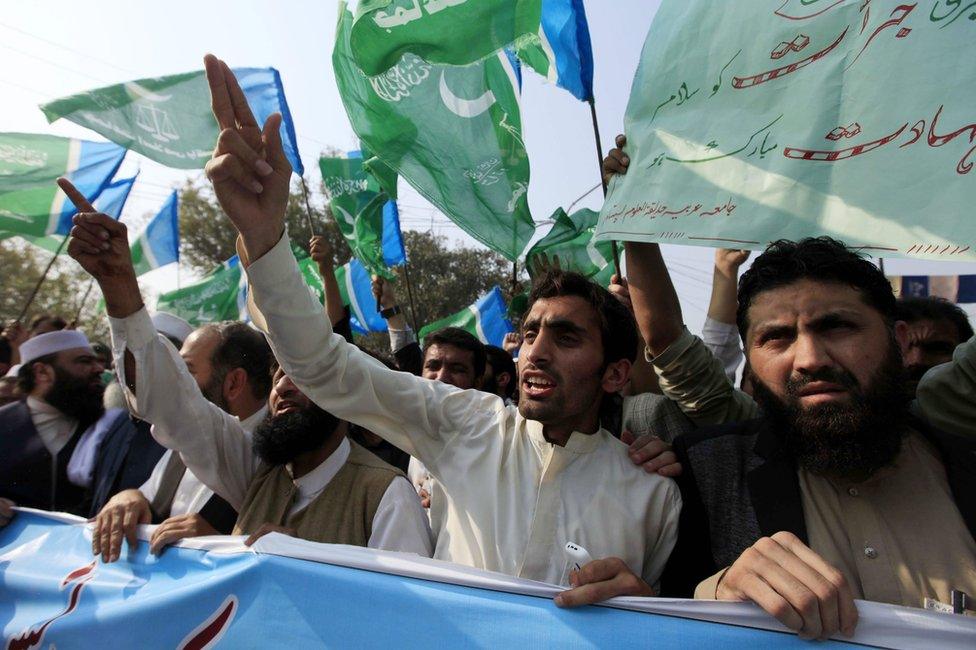
Protests took place on Monday in Peshawar and other Pakistani cities
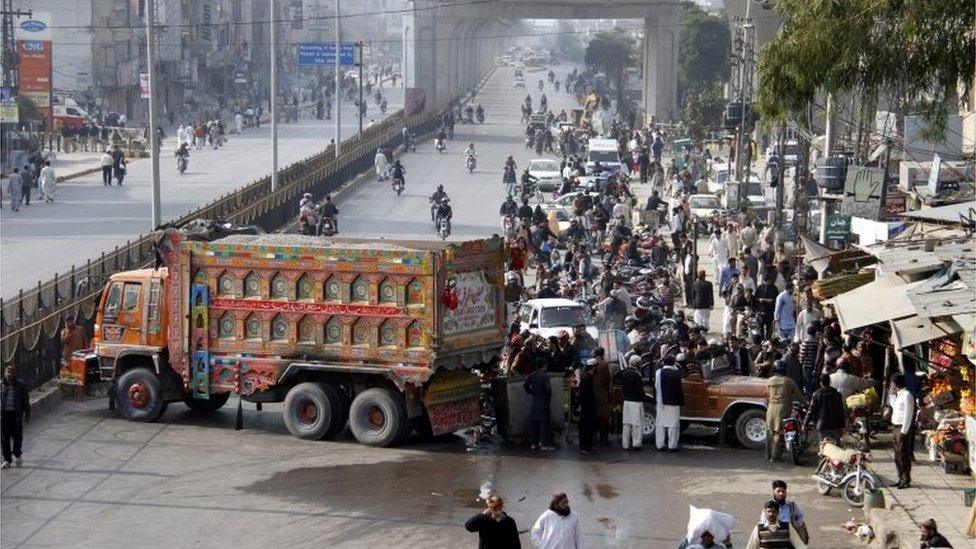
This road into Islamabad was blocked by Qadri supporters on Monday
Qadri was executed at 04:30 local time (23:30 GMT) at Adiala jail in Rawalpindi on Monday.
He had trained as an elite police commando and was assigned to Salman Taseer as his bodyguard. Qadri shot the politician 28 times at an Islamabad market in January 2011 and was sentenced to death later that year.
He claimed it was his religious duty to kill the minister, who was an outspoken critic of Pakistan's harsh blasphemy laws and supported liberal reforms.
Pakistan has seen Islamist groups grow in influence in recent years and several high-profile blasphemy cases.
Blasphemy is an extremely sensitive issue in Pakistan and critics argue that blasphemy laws are often misused to settle personal scores and unfairly target minorities.

Who was Salman Taseer?
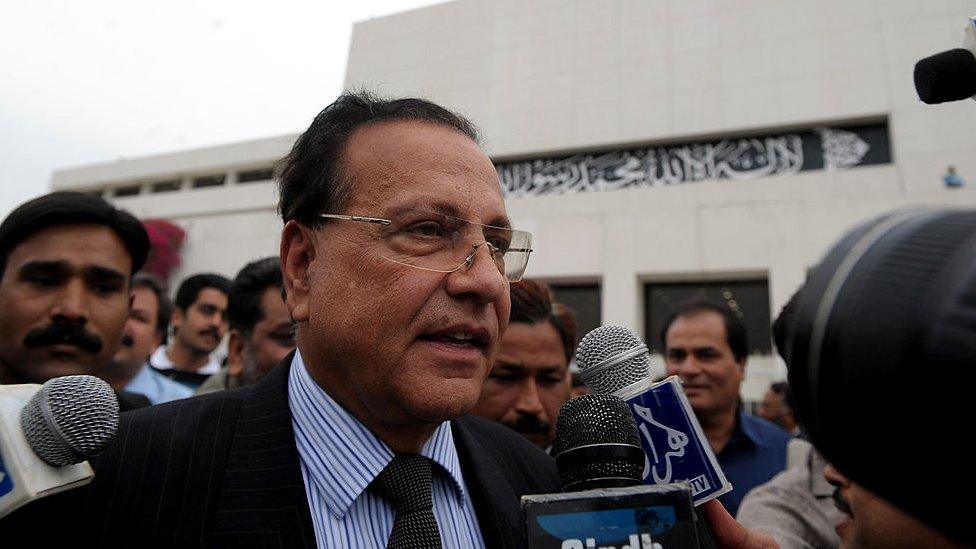
The 2011 murder of Salman Taseer, who was the governor of Punjab, was one of Pakistan's most high-profile assassinations
He was one of the most prominent liberal politicians in the country and a close associate of Asif Ali Zardari, who was then the president
Known to be an outspoken critic of the country's harsh blasphemy laws, arguing that they discriminated against religious minorities, and sought liberal reforms
He had called for a pardon for Asia Bibi, a Christian woman who was sentenced to death in 2010 for insulting the Prophet Muhammad
Read more: Death of a liberal
- Published29 February 2016
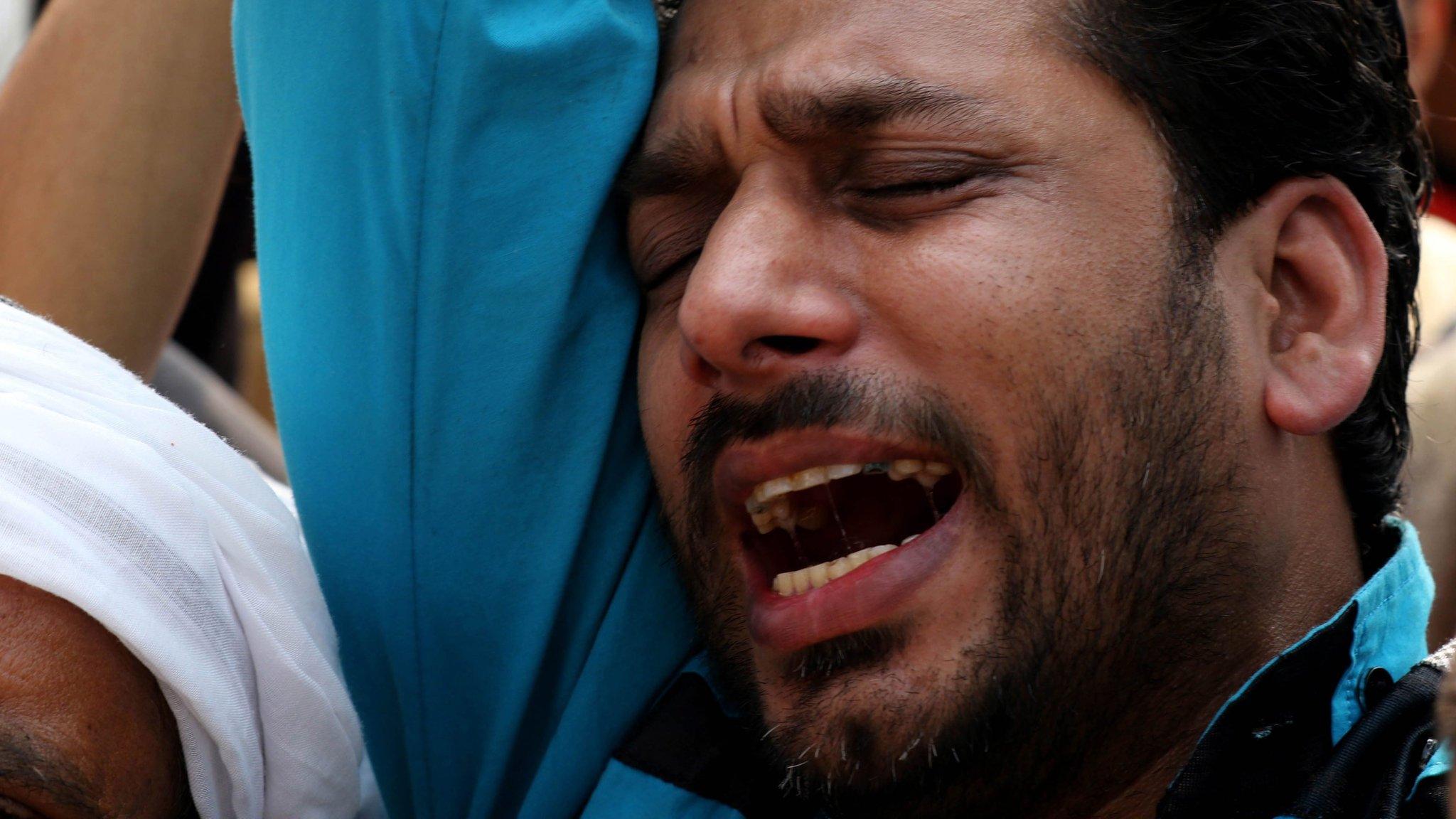
- Published9 January 2012
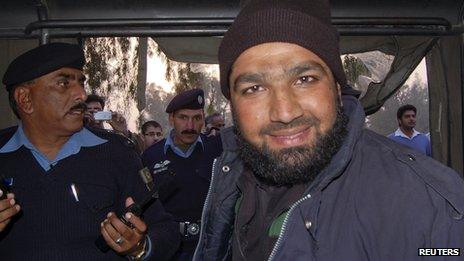
- Published14 January 2011
- Published5 January 2011